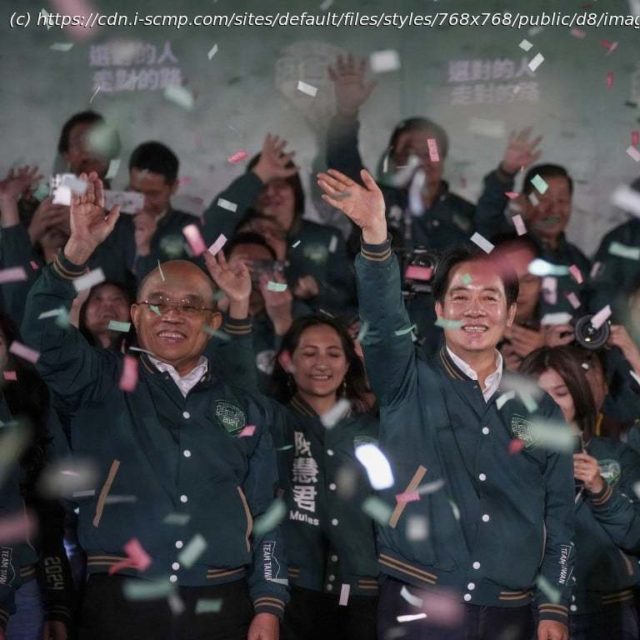All eyes will be on Beijing’s reaction to the victory of someone it sees as a hardcore separatist and the issue threatens to further cloud relations with the US.
William Lai Ching-te claimed a decisive victory in the Taiwanese presidential election on Saturday but his party failed to retain its legislative majority, adding a note of uncertainty to his presidency.
The victory of a candidate whom mainland China has repeatedly branded a “troublemaker” over his stance on independence is expected to further fuel cross-strait tensions.
Beijing’s Taiwan Affairs Office reacted to the result by saying it cannot “stop the general trend” towards “inevitable” reunification.
The results also threaten to further complicate the fragile relationship between China and the United States because Beijing has repeatedly stressed that the issue is its ultimate red line.
Lai., the Democratic Progressive Party’s candidate, took an early lead when counting began at 4pm, eventually finishing with 40 per cent of the total votes cast, or just under 5.6 million.
Hou Yu-ih from the mainland-friendly Kuomintang trailed in second place on 33.5 per cent (4.7 million votes), with Ko Wen-je from the upstart Taiwan People’s Party on 26.5 per cent (3.7 million votes), according to the Central Election Commission’s tally.
The election had a turnout of 71.9 per cent – about 14 million people – slightly lower than the 74.9 per cent recorded four years ago.
The result means that the independence-leaning DPP is the first party to secure a third presidential term since the island’s first direct presidential vote in 1996.
Lai, speaking after his victory, said the election “has shown the world the Taiwanese people’s insistence on democracy, and I hope the other side of the Taiwan Strait can also fully understand such a voice”.
But that message received a stony reception in Beijing, which reacted by emphasising its “resolute opposition” to Taiwanese independence, “separatist activities and interference from external forces”.
Chen Binhua, a spokesman for the Taiwan Affairs Office, said: “This election cannot change the basic pattern and development direction of cross-strait relations …. nor can it stop the general trend that the motherland will eventually and will inevitably be reunified.”
Earlier, Hou congratulated Lai for his victory and apologised for “letting everybody down”.
“I congratulate Lai Ching-te and Hsiao Bi-khim [Lai’s running mate] and I hope they won’t fail our expectations for the government,” Hou said. “I hope all parties can unite together after the election when we face Taiwan’s challenges.”
Ko, in his concession speech, said his relatively new party has proven itself to be a “key opposition force” and that there was more to Taiwanese politics than the two main parties.
Start
United States
USA — Political Taiwan elections: William Lai’s presidential victory risks further tensions with Beijing






